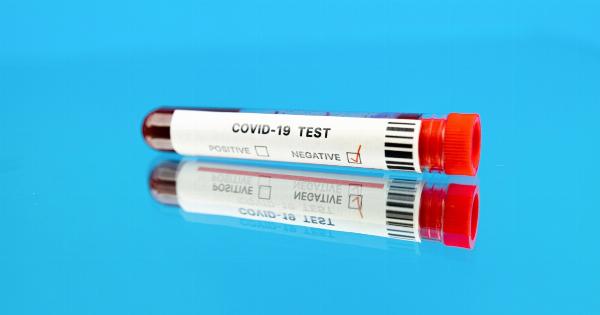In recent times, the Middle East Respiratory Syndrome (MERS) has emerged as a concerning viral disease. It is caused by a coronavirus called the MERS-CoV, which was first identified in 2012.
Understanding MERS
MERS has been found to have a high fatality rate, making it a significant public health concern. The virus primarily affects the respiratory system, causing severe acute respiratory illness with symptoms like fever, cough, and shortness of breath.
Investigation of Potential MERS Cases
In an effort to contain the spread of MERS, various countries have implemented rigorous monitoring and testing protocols. One such potential MERS case was recently identified.
Initial Suspicions
A patient exhibiting symptoms consistent with MERS was admitted to a local hospital. The medical team suspected the possibility of MERS and immediately initiated the necessary precautions to prevent further transmission.
Laboratory Testing
The patient’s respiratory samples were sent to a specialized laboratory to undergo rigorous testing for the presence of MERS-CoV. The laboratory used specific genetic probes and PCR techniques to detect the virus.
Negative Results
After a thorough analysis, the laboratory reported that the patient’s samples tested negative for MERS-CoV. This result indicated that the patient did not have MERS and was therefore not a source of transmission.
Relief and Continued Vigilance
The negative result brought much relief to the medical team and the general public. However, it is crucial to emphasize that MERS remains a significant threat, and continued vigilance is necessary to prevent its spread.
Lessons Learned
Experience gained from handling potential MERS cases has taught us the importance of prompt and effective surveillance, rapid testing capabilities, and an organized response system.
Infection Control Measures
Strict infection control measures remain crucial in preventing the transmission of MERS. This includes adequate personal protective equipment for healthcare providers, isolation of suspected cases, and robust hygiene practices.
Public Awareness and Education
Efforts should be made to educate the public about MERS, its symptoms, and preventive measures such as regular handwashing, respiratory etiquette, and avoiding close contact with individuals exhibiting symptoms.
International Cooperation
MERS is not confined to a specific geographic location. International cooperation and information sharing among countries are essential to combat the potential global spread of the virus.
The Way Forward
While the recent case turned out to be negative for MERS, it is a reminder of the ongoing threat posed by the virus.
Continued investment in research, surveillance, and public health measures is crucial to effectively manage and control future outbreaks.




























